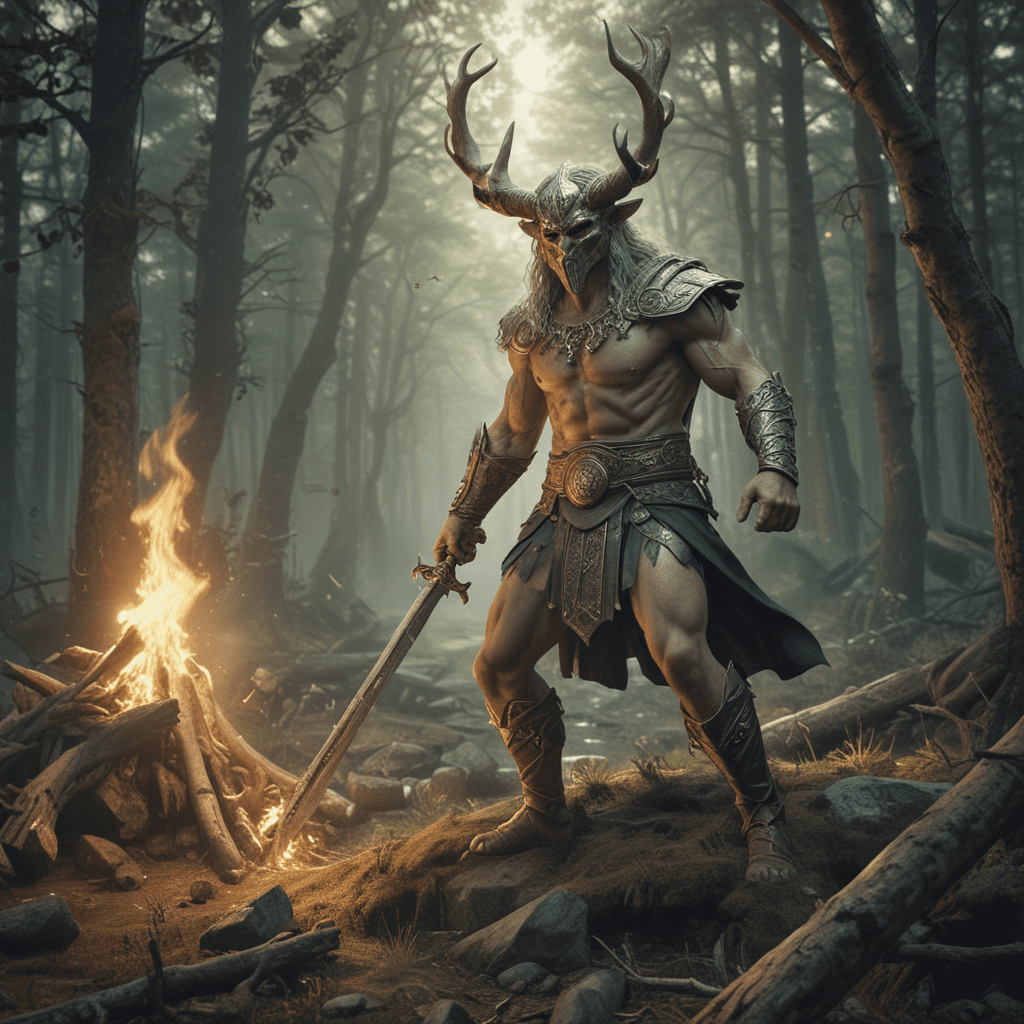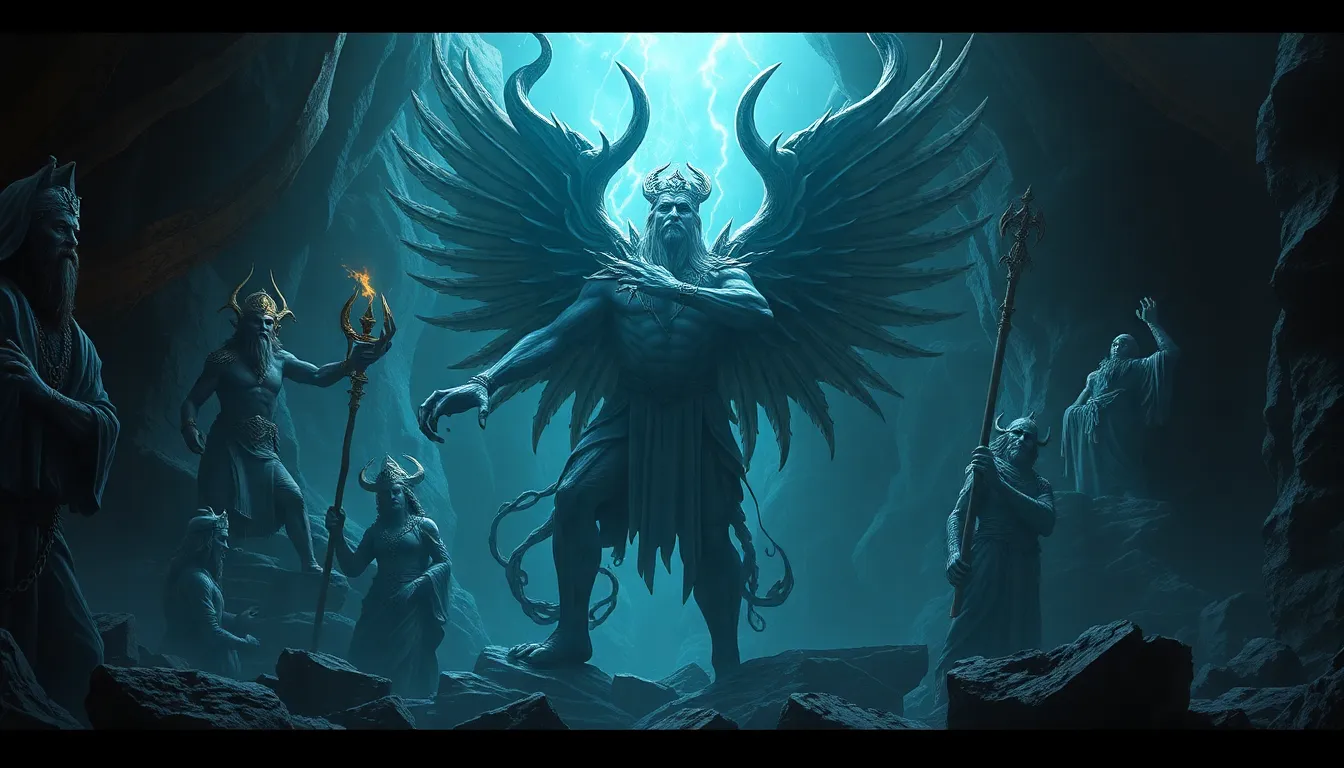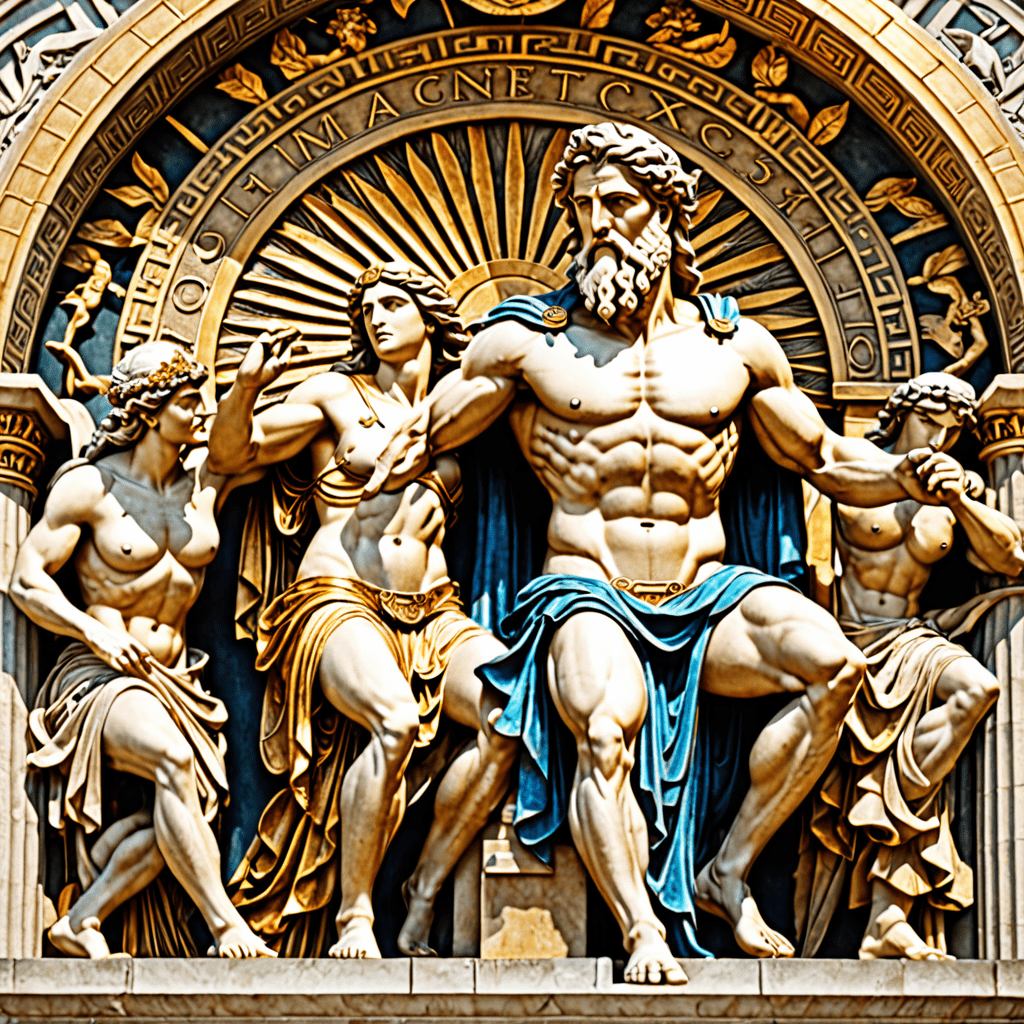Gods vs. Monsters: Epic Mythological Battles You Can’t Miss!
I. Introduction to Mythological Conflicts
Mythology serves as a fascinating window into the beliefs, values, and histories of various cultures. It encompasses a collection of traditional stories that explain the origins of the world, the nature of gods and creatures, and the moral lessons that guide society. Myths are not just tales of gods and monsters; they are a reflection of human experiences and the struggles between good and evil.
In these ancient narratives, gods often embody purity, power, and wisdom, while monsters symbolize chaos, destruction, and the unknown. The epic battles between these entities reveal the complexities of existence and the eternal struggle between order and disorder. This article explores notable mythological conflicts that illustrate these themes.
II. The Origins of Gods and Monsters in Mythology
The origins of gods and monsters are often steeped in creation myths, which vary significantly across cultures. These stories provide insight into how different societies perceive the divine and the monstrous, reflecting their values and fears.
- Creation myths: Many cultures describe a cosmic event where gods emerged from chaos or darkness, often resulting in the creation of the world and its inhabitants.
- Cultural variations: Each pantheon has its unique deities and creatures. For instance, Greek mythology features a plethora of gods like Zeus and monsters like the Minotaur, while Hindu mythology introduces deities like Vishnu and demons like Ravana.
- Symbolism: Gods often symbolize ideals such as justice and wisdom, while monsters can represent human fears, societal evils, or natural disasters.
III. The Epic Battle of Zeus vs. Typhon (Greek Mythology)
Zeus, the king of the Greek gods, is known for his authority and ability to control the sky and thunder. His significance in the Greek pantheon cannot be overstated, as he was viewed as the protector of order and justice.
Typhon, often described as the father of monsters, was a formidable creature born from Gaia and Tartarus. With a hundred dragon heads and a violent nature, Typhon challenged the supremacy of Zeus and threatened the very fabric of the cosmos.
The confrontation between Zeus and Typhon is legendary. Using his thunderbolts, Zeus fought fiercely against Typhon, who unleashed his monstrous offspring in an attempt to overwhelm the god. Ultimately, Zeus triumphed, imprisoning Typhon under Mount Etna, symbolizing the victory of order over chaos.
IV. The Clash of Odin and Fenrir (Norse Mythology)
In Norse mythology, Odin is revered as the Allfather, a god of wisdom, war, and death. His role is pivotal as he guides the souls of the fallen and seeks knowledge at any cost.
Fenrir, the monstrous wolf, was prophesied to bring devastation during Ragnarok, the end of the world. As a child, Fenrir was so powerful that the gods, fearing his might, bound him with chains. However, it was foretold that he would eventually break free and confront Odin.
The fateful encounter occurred during Ragnarok, where Odin faced Fenrir in a battle that would lead to his demise. This clash illustrates the inevitability of fate and the cyclical nature of life and death in Norse beliefs.
V. The Struggle of Ra Against Apophis (Egyptian Mythology)
Ra, the sun god, was central to Egyptian civilization, symbolizing life, growth, and the cycle of day and night. His daily journey across the sky was vital for the sustenance of life.
Apophis, the serpent of chaos, embodied darkness and disorder, eternally seeking to devour Ra and plunge the world into chaos.
Each night, Ra engaged in a fierce battle against Apophis, representing the struggle between light and darkness. This daily conflict was so significant that it inspired rituals and prayers among the Egyptians, who sought to ensure Ra’s victory and the continuation of the cosmos.
VI. The Duel of Shiva and Ravana (Hindu Mythology)
Shiva, one of the principal deities in Hinduism, embodies destruction and regeneration. He is revered for his asceticism, yet he is also a fierce warrior when provoked.
Ravana, the demon king of Lanka, is known for his intelligence and strength, often depicted with ten heads. His abduction of Sita, the wife of Rama, led to a monumental conflict.
The epic tale of their confrontation is chronicled in the Ramayana. In this narrative, Shiva ultimately aids Rama in defeating Ravana, reinforcing the themes of good triumphing over evil and the importance of righteousness in human actions.
VII. The Fight of Quetzalcoatl vs. Tezcatlipoca (Aztec Mythology)
Quetzalcoatl, the feathered serpent god, represents wisdom, life, and the morning star. He is often associated with creation and the arts.
Tezcatlipoca, the god of the night and conflict, embodied the volatile nature of existence. Their rivalry is one of the central themes in Aztec mythology.
This competition between Quetzalcoatl and Tezcatlipoca reflects the dualities of creation and destruction. Their clashes not only shaped the Aztec worldview but also influenced their societal norms, rituals, and the understanding of life’s inherent conflicts.
VIII. The Battle of Hades and Cerberus (Greek Mythology)
Hades, the god of the underworld, governs the realm of the dead, ensuring the balance between life and death. He is often misunderstood, as he does not embody evil but rather the necessary aspect of mortality.
Cerberus, the three-headed dog, serves as the guardian of the gates to the underworld, preventing the escape of souls and the entry of the living.
The significance of Hades’ relationship with Cerberus extends beyond mere guardianship; it symbolizes the acceptance of death and the importance of boundaries in life. Their dynamic illustrates the intricate balance between the living and the dead, reinforcing the notion that death is a natural part of existence.
IX. Conclusion
The epic battles between gods and monsters across various mythologies provide profound insights into the human condition, the nature of good and evil, and the eternal struggle for order amidst chaos. These conflicts not only entertain but also teach invaluable lessons about courage, morality, and the complexities of existence. As we explore these mythological narratives, we gain a deeper appreciation for the stories that have shaped cultures and continue to resonate in our lives today.



